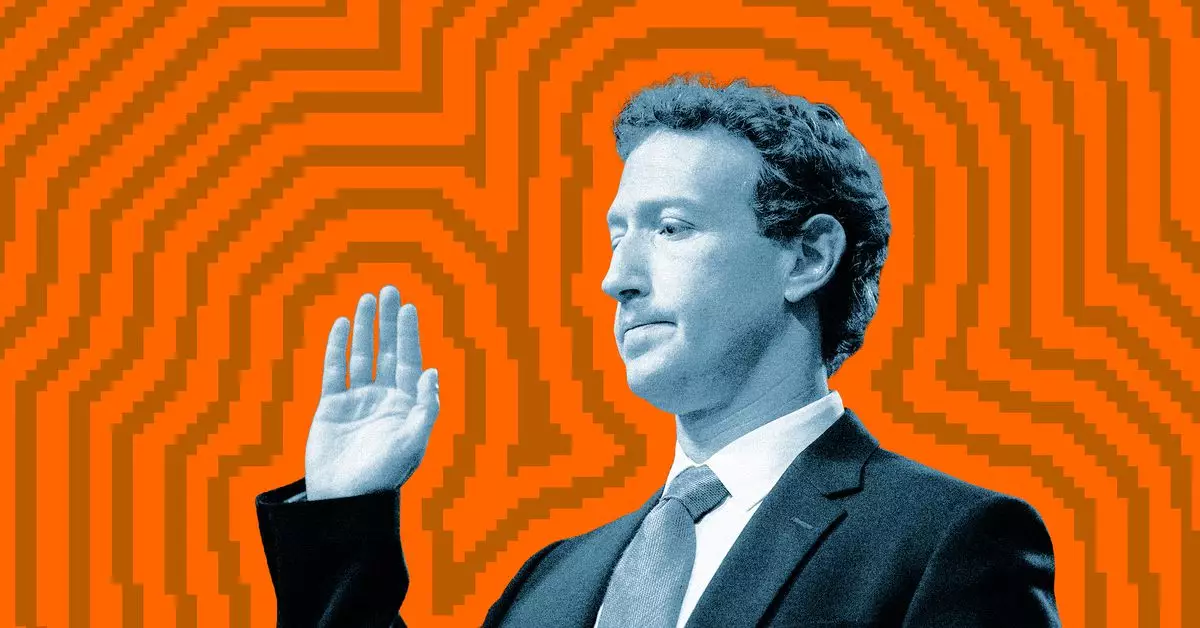The recent dinner between Meta’s CEO Mark Zuckerberg and then-President-elect Donald Trump at Mar-a-Lago has sparked considerable debate about the implications of such high-level meetings between tech leaders and political figures. In an era where technology influences every facet of public life, the convergence of these two realms raises critical questions regarding transparency, accountability, and the future trajectory of innovation in America. Zuckerberg’s involvement with Facebook and its controversial role during the 2020 presidential election undoubtedly casts a long shadow over this interaction.
As American society grapples with issues surrounding social media’s impact on democracy, Zuckerberg’s presence at this dinner is particularly noteworthy. Tech companies, including Facebook, have faced increasing scrutiny for their roles in manipulating public opinion and shaping electoral outcomes. A spokesperson from Meta, Andy Stone, emphasized the significance of the occasion by stating, “It’s an important time for the future of American Innovation.” However, such statements can seem hollow when juxtaposed with the societal divisions sown during recent election cycles.
The tech industry is often lauded for its potential to drive progress and enhance communication, yet its mechanisms for governance and ethical oversight are increasingly called into question. Zuckerberg’s tech-savvy reputation may not shield him from the backlash over Facebook’s contributions to harmful political propaganda. Critics argue that his dinner with Trump could be viewed as an attempt to curry favor with power while ignoring the ramifications of his company’s actions.
Accountability of Tech Giants
The ongoing dialogue regarding the accountability of tech giants is more urgent than ever. Critics, including some political figures, have called for more stringent regulations on platforms like Facebook, insisting that unchecked influence can lead to detrimental consequences for democracy. The trust that citizens place in these platforms is fragile and, as observed in the wake of the 2020 election, can easily falter when misinformation permeates the public sphere.
Zuckerberg’s financial contributions to initiatives aimed at facilitating mail-in ballots during the COVID-19 pandemic add another layer of complexity to this issue. Although these donations were intended to support democratic processes, they incited further skepticism regarding the tech leader’s objectivity and motives. It raises the question: should technology executives like Zuckerberg be held to the same standard of accountability as public officials when their platforms wield such monumental influence?
As we navigate the complexities of tech’s integration into the political fabric of society, the balancing act between innovation and ethics remains paramount. Zuckerberg and Trump’s dinner may be seen as a mere networking opportunity or as a blatant disregard for the serious implications of their respective domains—perhaps it is both. Moving forward, the onus lies on the tech industry to establish trust and accountability without undermining the very democracy they claim to support.
This meeting serves as a reminder that the dialogue between tech and politics must evolve. It calls for a collaborative effort to prioritize ethical standards and uphold democratic principles. As technology continues to reshape our world, we must demand that those at the helm wield their influence responsibly, ensuring that innovation works for the greater good rather than becoming a tool of division.

